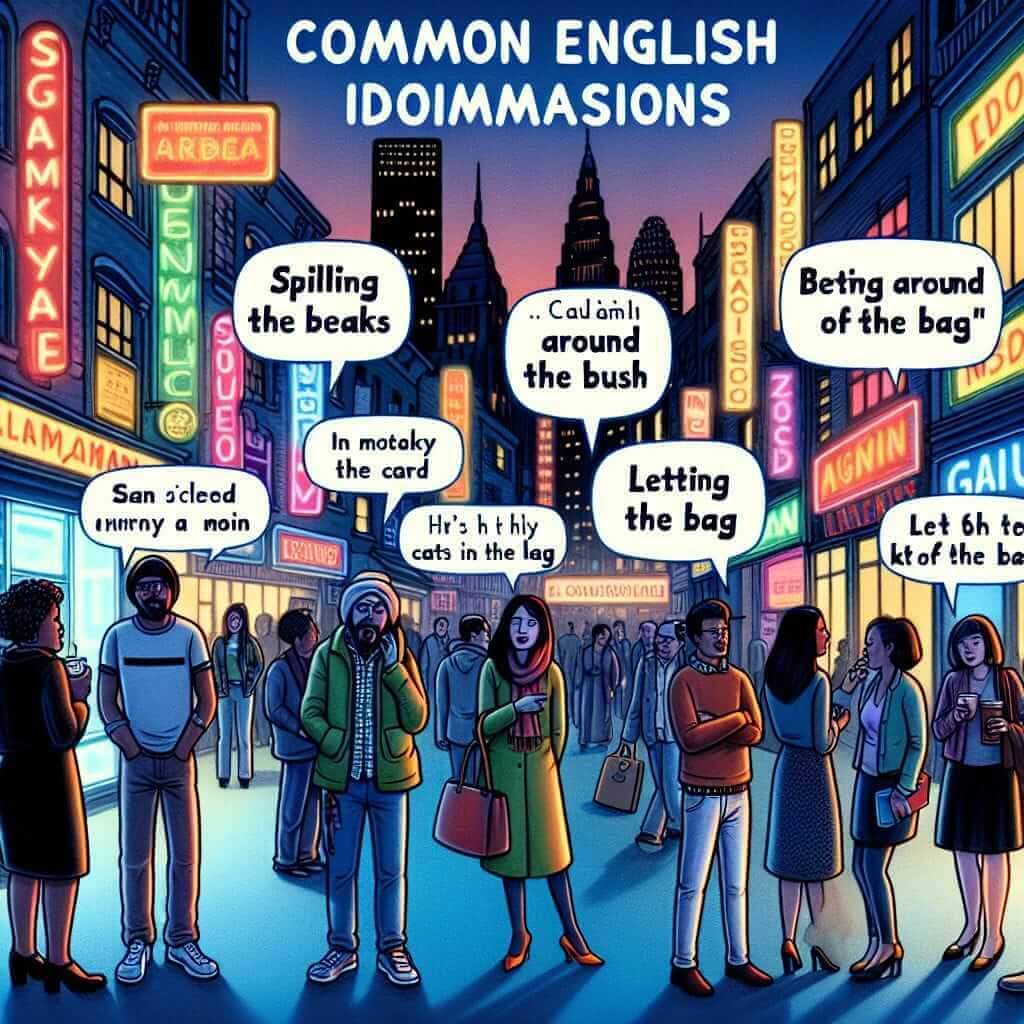When learning English for the IELTS exam, understanding idiomatic expressions such as “Don’t look a gift horse in the mouth” can greatly enhance your vocabulary and comprehension. This article will dissect the meaning, usage, and prevalence of this idiom in different parts of the IELTS exam. We will also explore related idiomatic expressions and demonstrate how to use them effectively.
Understanding the Idiom “Don’t Look a Gift Horse in the Mouth”
What Does It Mean?
The idiom “Don’t look a gift horse in the mouth” means that you should not find fault with something that you have received as a gift or benefit. Literally, it comes from the practice of evaluating a horse’s age by inspecting its teeth. In idiomatic use, the phrase advises us to be grateful for gifts or opportunities without being overly critical.
Pronunciation and Explanation
- Don’t [doʊnt] (contraction of “do not”)
- Look [lʊk] (verb)
- A [ə] (indefinite article)
- Gift Horse [ɡɪft hɔrs] (noun phrase, a horse given as a gift)
- in the Mouth [ɪn ðə maʊθ] (prepositional phrase)
Synonyms and Related Expressions
- Count your blessings (Verb phrase): Be grateful for what you have.
- Take the rough with the smooth (Verb phrase): Accept difficulties along with good things.
- With all due respect (Phrase): Polite way to express criticism or disagreement.
- Appreciate (Verb) /ˌə.prɪˈʃieɪt/: To recognize the full worth of something.
Examples:
- Count your blessings – “Despite the challenges, remember to count your blessings.”
- Take the rough with the smooth – “Life comes with its ups and downs; you have to take the rough with the smooth.”
- With all due respect – “With all due respect, I believe your assessment is incorrect.”
- Appreciate – “I truly appreciate the efforts you put into the project.”
Prevalence in IELTS
Listening Section
Idiomatic expressions are commonly found in the IELTS Listening section, particularly in conversations and social contexts.
Reading Section
Idioms may appear in passages in the Reading section, especially in articles that discuss everyday life or social issues.

Writing Section
Using idioms in Writing, especially in Task 2 essays, can showcase a candidate’s proficiency and variety in vocabulary.
Speaking Section
Idiomatic expressions play a significant role in the Speaking section. Examiners look for natural, fluent language, and the use of idioms can demonstrate a higher level of English.
Using Idiomatic Expressions in IELTS
Listening Section Example:
Conversation Excerpt:
- Speaker 1: “I can’t believe I got this promotion, but the new office is so small.”
- Speaker 2: “Well, don’t look a gift horse in the mouth! At least you got a promotion.”
Reading Section Example:
Reading Passage Sentence:
- “Receiving unexpected help from strangers can often be more surprising than a windfall; don’t look a gift horse in the mouth.”
Writing Section Example:
Task 2 Essay Excerpt:
- “While many criticize foreign aid, it is vital that we don’t look a gift horse in the mouth. Donations, even if not perfectly managed, still provide substantial benefits to the recipient nations.”
Speaking Section Example:
Speaking Response:
- “When I received the scholarship, my father advised me, ‘Don’t look a gift horse in the mouth.’ It was then I realized the true value of the opportunity I was given.”
Combining Idioms with Other Vocabulary
-
Don’t look a gift horse in the mouth combined with “appreciate”
- “Remember to appreciate every opportunity you get. Don’t look a gift horse in the mouth.”
-
Don’t look a gift horse in the mouth combined with “with all due respect”
- “With all due respect, we should not look a gift horse in the mouth when additional funding is provided.”
-
Don’t look a gift horse in the mouth combined with “count your blessings”
- “In tough times, it’s essential to count your blessings and not look a gift horse in the mouth.”
Related Idiomatic Expressions
- Bite the hand that feeds you – Criticize or harm someone who helps you.
- “You shouldn’t bite the hand that feeds you; show some gratitude instead.”
- Grin and bear it – Accept something unpleasant without complaining.
- “Sometimes, you just have to grin and bear it.”
- Cut your coat according to your cloth – Live within your means.
- “Always cut your coat according to your cloth, and you’ll avoid financial trouble.”
- Take it with a pinch of salt – View something skeptically.
- “Take his advice with a pinch of salt, as he often exaggerates.”
- Every cloud has a silver lining – Every bad situation has a positive aspect.
- “Remember that every cloud has a silver lining, so stay hopeful.”
Conclusion
Understanding and using idioms like “Don’t look a gift horse in the mouth” can significantly enhance your IELTS performance. Incorporate this idiom and its related expressions into your practice to develop a more nuanced and sophisticated English vocabulary. Keep practicing, and you will see improvements in your scores across the Listening, Reading, Writing, and Speaking sections.
Practice Questions:
- How can understanding idioms help in the IELTS Speaking section?
- Create a short paragraph using the idiom “Don’t look a gift horse in the mouth” and two related expressions.
- Find an IELTS Reading passage that contains an idiomatic expression and explain its meaning.
Happy studying, and remember, the key to mastering idioms is practice!